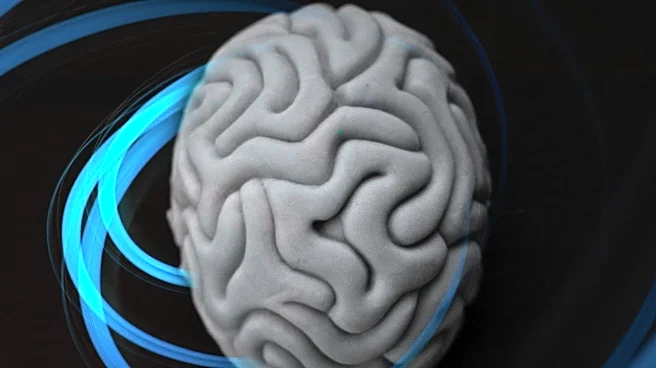What's Happening?
A recent study published in Molecular Biology and Evolution suggests that the relatively high incidence of Autism Spectrum Disorder (ASD) in humans may be linked to evolutionary changes in the human brain. The research highlights that about 3.2% of children in the United States are diagnosed with ASD, a condition that appears to be unique to humans. The study utilized single-cell RNA sequencing to analyze brain cell types across different species, revealing that certain neurons in the human brain, particularly L2/3 IT neurons, have evolved rapidly compared to those in other apes. This rapid evolution is associated with significant changes in autism-related genes, potentially driven by natural selection specific to humans. The study posits that these genetic changes may have contributed to unique human cognitive traits, such as advanced speech production and comprehension.
Why It's Important?
The findings of this study are significant as they provide insights into the evolutionary underpinnings of autism, a condition that affects millions globally. Understanding the genetic and evolutionary basis of ASD could lead to better diagnostic and therapeutic strategies. The research suggests that the same genetic changes that contribute to the uniqueness of the human brain may also increase neurodiversity, including conditions like autism. This highlights the complex interplay between evolution and neurodevelopmental disorders, suggesting that traits associated with ASD may have conferred evolutionary advantages, such as enhanced cognitive abilities and language skills. These insights could influence future research directions and public health policies related to autism.
What's Next?
Further research is needed to explore the specific human cognitive features and brain anatomy changes that provided evolutionary advantages. Scientists may focus on understanding how these genetic changes impact brain development and function, potentially leading to new interventions for ASD. Additionally, the study opens avenues for exploring how other neurodevelopmental disorders may be linked to evolutionary processes. Researchers may also investigate the broader implications of these findings on human evolution and the development of cognitive traits.
Beyond the Headlines
The study raises ethical and philosophical questions about the nature of neurodiversity and its role in human evolution. It challenges the perception of autism solely as a disorder, suggesting it may be an integral part of human cognitive diversity. This perspective could influence societal attitudes towards autism, promoting greater acceptance and inclusion. The research also underscores the importance of preserving genetic diversity, as it may hold the key to understanding human evolution and developing innovative solutions to complex health challenges.









